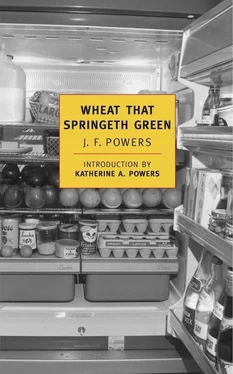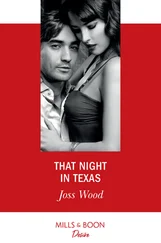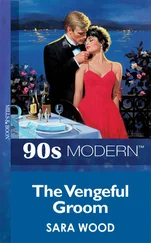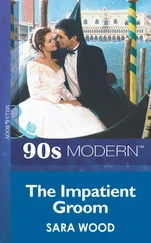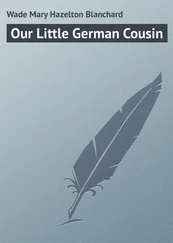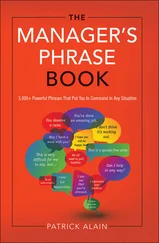J. Powers - Wheat That Springeth Green
Здесь есть возможность читать онлайн «J. Powers - Wheat That Springeth Green» весь текст электронной книги совершенно бесплатно (целиком полную версию без сокращений). В некоторых случаях можно слушать аудио, скачать через торрент в формате fb2 и присутствует краткое содержание. Год выпуска: 2000, Издательство: NYRB Classics, Жанр: Современная проза, на английском языке. Описание произведения, (предисловие) а так же отзывы посетителей доступны на портале библиотеки ЛибКат.
- Название:Wheat That Springeth Green
- Автор:
- Издательство:NYRB Classics
- Жанр:
- Год:2000
- ISBN:нет данных
- Рейтинг книги:5 / 5. Голосов: 1
-
Избранное:Добавить в избранное
- Отзывы:
-
Ваша оценка:
- 100
- 1
- 2
- 3
- 4
- 5
Wheat That Springeth Green: краткое содержание, описание и аннотация
Предлагаем к чтению аннотацию, описание, краткое содержание или предисловие (зависит от того, что написал сам автор книги «Wheat That Springeth Green»). Если вы не нашли необходимую информацию о книге — напишите в комментариях, мы постараемся отыскать её.
Wheat That Springeth Green — читать онлайн бесплатно полную книгу (весь текст) целиком
Ниже представлен текст книги, разбитый по страницам. Система сохранения места последней прочитанной страницы, позволяет с удобством читать онлайн бесплатно книгу «Wheat That Springeth Green», без необходимости каждый раз заново искать на чём Вы остановились. Поставьте закладку, и сможете в любой момент перейти на страницу, на которой закончили чтение.
Интервал:
Закладка:
So Joe went ahead, to the foot of the altar, and with the thing there on the floor for everybody to see and blame him for pulling down, he was embarrassed all during Mass, even more when he didn’t have his back to the congregation, during the sermon (Father Stock urged the congregation not only to attend the parish social themselves but to bring along their good non-Catholic friends and neighbors) and during Holy Communion (those waiting to receive got a closer look at the thing and also at Joe when he, attending Father Day, the new but not-so-young assistant from Ireland, held the plate under their chins).
In the sacristy after Mass, Father Day — he had a monkey face — smiled at Joe, but Father Stock, after sending Iggy to look for the janitor, frowned at Joe. “Put out the candles, boy. They cost a fortune.” Joe made sure the candles didn’t smoke and returned to the sacristy with the snuffer. Father Day smiled at him again.
“Hockitt’s the name?” Father Day had a frosty voice.
“Yes, Father.”
“Hockitt’s Cull Iss Hut Stoof? That wan?”
“Yes, Father.”
“Ah, so. Will we see yez at the beano, lad?”
“Father?”
“At the social, Jack.”
Jack? “Yes, Father. I’m in the race.”
“Ah, the race. That I’ll have to see. Will yez win?”
Joe was sure he would, and would make up for pulling down the bell, but like Tom Playfair in the Father Finn books, said, modestly, “I’ll do my best, Father.”
“More power to yez, Jack.”
“Yes, Father.”
On the way home from church, Joe thought about his talk with Father Day (was glad Father Stock, with whom he’d never had one, had heard it), and at breakfast told Mama and Daddy about it (not about the Jack part, though, or anything about the bell), and repeated the funny part. “‘Hockitt’s Cull Iss Hut Stoof? That wan?’”
“Drinks,” Daddy said, and got up from the table.
“John.” Mama followed Daddy out of the room, calling back to Joe, “Daddy’s not feeling well. We won’t be going to church today. Eat your prunes, dear.”
After breakfast, after looking everywhere else, Joe went upstairs and, standing at the closed door of Mama and Daddy’s bedroom, asked — reluctantly, because sometimes if you didn’t ask, you found things—“Where’s the paper?”
“Oh,” Mama said, inside. “Oh. Has it come yet?”
“Course.” It had been on the front porch when Joe left for Mass.
“Oh, here it is!” Mama handed out the funnies and the sport section.
Joe went down to the living room and was on the floor reading when Mama came in and sat down with a section of the paper, which, though, she wasn’t reading whenever he looked at her. He thought she wanted the funnies (she read them; Daddy didn’t), and so he hurried.
“Dear. If I have to call the doctor for Daddy, we may need something from the drugstore. So we want you to stay around the house this afternoon.”
“I can’t. I’m in the race.” What Mama had said, the craziness of it, hit him again. “Call the doctor now . I’ll go now .”
Mama stood up looking sad, and Joe thought it was going to be one of those times when she said there was no use talking to him and left the room, but it wasn’t — she gave him the section of the paper she hadn’t been reading.
And there, on the front page, was a picture of one of Daddy’s trucks — HACKETT’S COAL IS HOT STUFF. And under the picture, in big print, it said “HOT STUFF!” And under the picture, in small print, it said the truck had been seized with a load of Canadian whiskey.
“The truck was stolen, dear.”
Not Uncle Bobby then.
“Or borrowed.”
Uncle Bobby.
“Daddy’s just sick about it, dear, and so am I.”
So was Joe. It was worse than Tom Kane’s mother swearing at Sister Agatha in front of the class, worse than Iggy Buker’s father coming to the Easter play drunk, worse than — no, not worse than wetting your pants, what was always happening to Delbert Freeman (but wasn’t mentioned to him because he was such a good fighter).
“We want you to stay around the house, dear.”
“Because”—Joe was looking down at the funnies, not at Mama—“you might need something at the drugstore?” Chicken!
“That’s right, dear.”
Not stopping at the stands for refreshments or to try his luck, though he had plenty of money, and changing directions whenever he saw guys from the class, though he was, or had been, fairly popular, Joe kept moving through the crowd. He wanted it to be seen that he was there, that he hadn’t stayed away, but without attracting undue attention to himself until he won the race. That might make up for pulling down the bell and might even — but he was afraid it wouldn’t — make up for the picture in the paper.
“Jack!”
“Afternoon, Father.”
But Father Day, though Joe had kept moving, caught him by the arm and held on to it while listening to an old poor woman (part of his job, another bad thing about being a priest) and saying “Ah, yiss” and “Och, no” to her until he could get away.
“C’mon, lad. I’ll trate yez.”
Joe was embarrassed when Father Day said to the two women at the ice cream stand, “Ah, ladies, if you please, for Jack, here, my young friend, a crame ice.” Crame ice!
Father Stock was making change at that stand, and Joe thought maybe Father Day wouldn’t have to pay for the cone, since they were both priests, but he did. Joe remembered to thank him and was going off by himself (not impolite of him because Father Day was now listening to a young woman with a baby) when caught by the arm again. After that, Joe stood by whenever Father Day stopped to listen to people — some of them knew Joe and were probably surprised to hear him called Jack. Joe was embarrassed by that, but pleased with “my young friend” and with “He’s vairrree fleeht of fooht.”
It was keen being with Father Day, going from stand to stand, spending money (Joe changed his five-dollar bill), with people following the two of them around because wherever they went there was excitement. At one of the wheels Father Day (“I’m the monn that broke the bank at Montee Carrrlo!”) won a half pound of sliced bacon and gave it to the old poor woman (who was one of the people following them around and who hurried off to put it in her icebox). At the stand where they threw lopsided baseballs at wooden milk bottles, Joe won a Kewpie doll and gave it to Frances, who was with a couple of Catholic friends. At that stand, though, Joe was embarrassed to see Father Day throw like a girl, underhand . And when they returned to the near beer stand and Father Day had another bottle (“A dozen of these min wouldn’t make a piint”), Joe was embarrassed again, because of the picture in the paper, and was glad when they moved on.
“Crame ice, lad?”
“I better not, Father — on account of the race.”
“Ah, the race! Ah, Sisters!” Father Day tipped his black hat to Sister Agatha and Sister Margaret. “My young friend Jack, here, he’s in the race and vairrree flooht of fleeht.”
Father Day laughed at his slip of tongue, and so did Joe, but Sister Agatha and Sister Margaret didn’t — they moved up to the ice cream stand.
“Two cones, please,” said Sister Agatha.
Father Stock called out to Father Day, “Mind stepping over to the rectory, Father? Saucers and spoons for the Sisters.”
“Oh, bother,” said Sister Agatha. “Two cones , please.”
“Or Es kee mo Pies,” said Sister Margaret.
“No, no,” said Father Stock, shaking his square head.
“Not a-tall, not a-tall,” said Father Day, and hurried off to the rectory.
Sister Agatha, looking put out, came over to Joe and whispered, “Father Day knows your father’s name is John — he thinks that’s your name too— that’s why he calls you Jack .”
Читать дальшеИнтервал:
Закладка:
Похожие книги на «Wheat That Springeth Green»
Представляем Вашему вниманию похожие книги на «Wheat That Springeth Green» списком для выбора. Мы отобрали схожую по названию и смыслу литературу в надежде предоставить читателям больше вариантов отыскать новые, интересные, ещё непрочитанные произведения.
Обсуждение, отзывы о книге «Wheat That Springeth Green» и просто собственные мнения читателей. Оставьте ваши комментарии, напишите, что Вы думаете о произведении, его смысле или главных героях. Укажите что конкретно понравилось, а что нет, и почему Вы так считаете.
